On April 7, shortly after President Trump announced his “Liberation Day” tariffs, Treasury Secretary Scott Bessent claimed in an interview that 50 to 70 countries had contacted the administration to begin trade deal negotiations. Apparently, none of those countries belonged to the European Union, because Trump admitted in a May Truth Social post that negotiations with the EU were not progressing. He also announced he was imposing 50 percent tariffs that are set to take effect on July 9. So far, the EU is holding strong, and Secretary Bessent noted in his testimony before congress earlier this month that the EU has been “very intractable.” Given that Europe’s economy is weak and that the continent relies significantly on trade with the U.S., why hasn’t Brussels come to the table?
For starters, negotiating with the European Union is never easy, something Secretary Bessent appears to have found out the hard way, as he noticed in a recent statement that he isn’t sure “who to call” to negotiate. The EU consists of 27 countries with their own economic strengths and priorities, ranging from high-tech service economies in Scandinavia to tourism-and-agriculture-focused countries like Greece. Ireland, where exports to the United States account for 25 percent of overall exports, is hit far worse—and may be more eager to yield—than a country like Spain or Poland, where exports to the United States make up only 3 to 5 percent of total exports. Likewise, on the question of whether to issue retaliatory tariffs, countries that import a lot from the United States (such as Ireland, the Netherlands, and Belgium) may look at things differently than those who don’t (such as Sweden, Finland, and the Baltic states).
Then there’s the process: Trade agreements must be first negotiated by the European Commission, the executive branch of the European Union where each country is represented by one commissioner. Then they must be approved by a 55 percent majority in the Council of the European Union, one of the two legislative arms of the Union, where each country has one representative who is also a member of the country’s government. The majority must also represent countries who together have at least 65 percent of the EU’s population. In cases where the trade agreement is “mixed,” meaning it includes matters largely reserved for the member states such as labor standards or investment protection, the council must be unanimous and the trade agreement must be approved by all 27 national parliaments, and in the case of Belgium, also its regional parliaments. Finally, a majority in the European Parliament, the “Congress” of the European Union, must approve the deal.
It should surprise no one to learn that this process isn’t fast. Yet, the EU is not—at least openly—even attempting to reach a deal with the U.S. There are good reasons for that.
The first, ironically, has to do with the slow economy. Years of pandemic have been followed by years of war and high inflation, and now high interest rates. From a political perspective, the trade war with the United States is a kind of gift: The EU and national leaders can now blame the stagnant economy on Trump and his mercantilist cronies. That the economy was doing poorly before Trump was reelected doesn’t matter much, because voters’ memories are famously short. What Trump has done is provide a target that European leaders can redirect anger toward, a tactic that works well since most European voters didn’t like Trump in the first place.
Some did, however, and that brings us to the second reason why the EU isn’t keen on a deal. The rise of right-wing populism has caused a headache for Brussels for almost two decades, and last year’s European Parliament elections were yet another strong showing for national conservative, euroskeptic, and populist forces. In Germany’s February elections, the far-right Alternative for Germany, or AfD, doubled its vote share.
Trump had enjoyed some popularity among this segment of the right. Some leaders have fully embraced him, visiting CPAC and other MAGA events, whereas others have been more nuanced, emphasizing his positive qualities without outright endorsing him. Now that Trump is turning on Europe, this is coming back to haunt them.
For all the talk of a “MEGA” movement, European populists have different interests from Trump. Even the vast majority of national conservatives support Ukraine and embrace free trade. And they don’t agree with the idea that their countries are somehow fleecing the United States. Yet because of their previous support for or alignment with Trump, those who framed themselves as patriots battling a globalist establishment are now being framed as unpatriotic. Meanwhile, the very establishment they opposed is now leading the fight for European interests and standing up to American bullying.
It is also important to recall that the overarching goal of the political establishment in Brussels is European integration. The striving for an “ever closer union” has been an explicit goal of the European Union since its founding, and this concept of European federalism—a “United States of Europe”—means transferring power away from the member states to the EU. The conflict with Trump only helps the EU on this front.
European federalists argue that European nations are too weak on their own, and that Europe will be picked apart by greater powers unless it unites. The problem for federalists has been that there is no strong common European identity. Europeans identify with their respective nations, and with their respective regions, far more than they identify as European. Interests between nations also diverge far too much, as evidenced by the state of gridlock that Brussels so often finds itself in.
In starting a trade war, Donald Trump has provided Europeans from all countries with a common foe, one who despises them because of his preconceived notions about Europeans and the liability he imagines our countries to be. This—unfortunately in my view—will make selling a “United States of Europe” far easier.
“It is hard to find any point in history during which the U.S. had fewer friends in Europe than it does right now.”
Trump’s trade war is also providing an opportunity that France and Germany in particular have been awaiting for more than half a century: an opportunity to end the U.S. dollar’s status as the undisputed global reserve currency. A side effect of Trump’s war on imports, if it proves successful, is that the number of dollars in circulation outside the U.S. will decrease.
Access to dollars abroad is outright necessary for the U.S. dollar to be able to function as a reserve currency. That status creates a demand for dollar-denominated assets, most notably U.S. government bonds. The reserve currency status allows the U.S. government to borrow money almost for free, despite being heavily indebted, and so Americans enjoy cheaper mortgages and businesses can borrow at lower rates than they otherwise would. With less demand for the dollar, the government would have to pay higher interest rates, which would in turn push up rates for mortgages and business loans (and tax rates in order to service the debt).
That is why, all the way back in the 1960s, Valéry Giscard d'Estaing, then France’s finance minister, coined the term “exorbitant privilege” to describe the benefits the Americans enjoyed because of the dollar’s reserve status. France’s currency had been held as a reserve currency prior to World War II, and since the launch of the euro, EU leaders have spoken increasingly openly about creating a multipolar reserve currency system.
While on the one hand Brussels is watching with horror as Trump destroys the global order, it also sees opportunities to strengthen its own position in the world economy and on the world stage. Chaos, to quote Littlefinger of Game of Thrones, is a ladder, after all.
Finally, the anti-Trump sentiment in Europe now is stronger than it was during Trump’s first term. Whereas Trump during his first term was viewed by Europeans as a clown and an accidental outcome of an eccentric electoral system, he is now viewed as an enemy. Tourism from Western Europe to the U.S. is in freefall even as the dollar weakens, something that should in theory boost tourism.
Even on the right, many of the prominent leaders of the aforementioned Trump-friendly elements have rushed to distance themselves from the president, Marine Le Pen of the right-populist National Rally party in France in March condemned Trump stopping aid to Ukraine as “brutality” and “reprehensible and cruel.” Prime Minister Giorgia Meloni of Italy has made it clear that she disapproves of the tariffs, and even Nigel Farage labeled them “excessive.”
Among the normally pro-American center-right, the feeling of betrayal is deep. It is hard to find any point in history during which the U.S. had fewer friends in Europe than it does right now.
Early on in the trade conflict, EU leaders offered “zero-for-zero” tariffs on a range of goods, an offer Trump promptly turned down. This makes a mockery of the claim that Trump is merely trying to fight “unfair” tariffs and that his end goal is to bring down tariffs across the board, and it also demonstrates how little he and his advisers understand about the mood in Europe. Any political leader bending over backwards to reach a deal with Trump would pay a heavy political price due to the anti-American sentiment that since January has spread like a wildfire across the continent.
Leaders who believe their own propaganda often face their own demise. It appears that, after years of sneering at the feeble, woke “europoors,” Trump began to truly believe that the EU would prove a doormat to his shock-and-awe tariff strategy. This has not come to pass, and that should have been predictable.
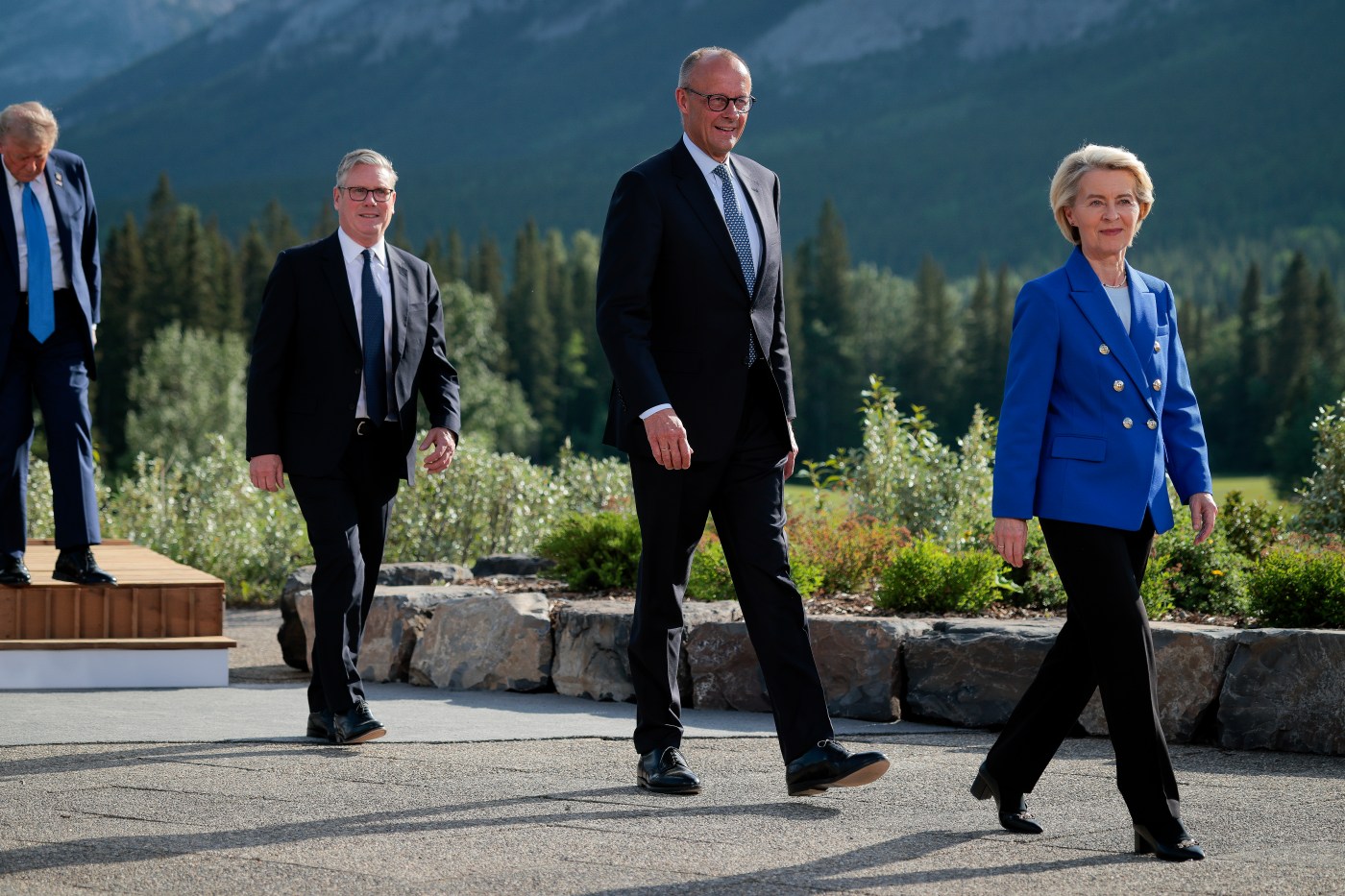
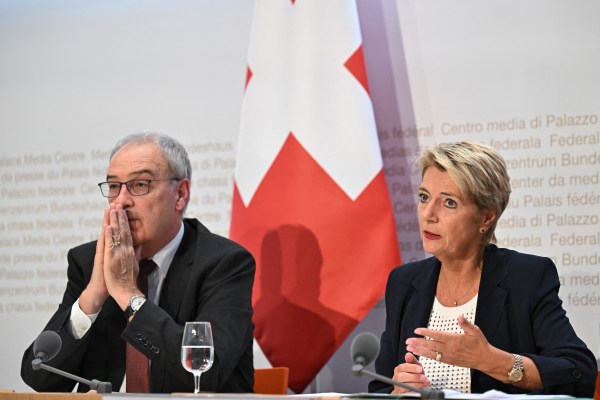
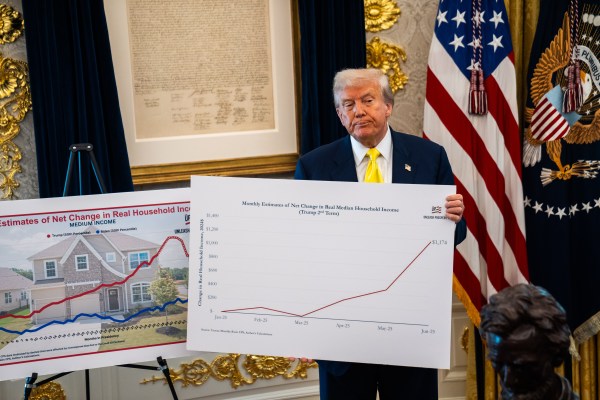
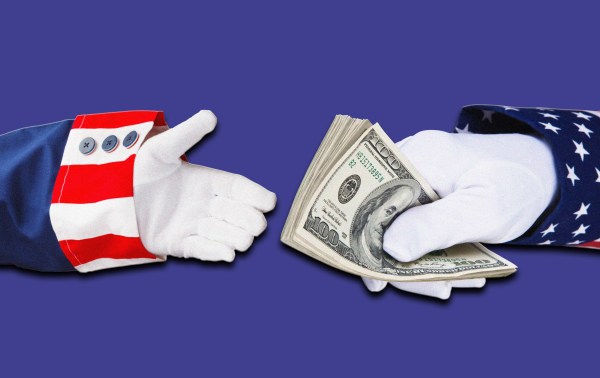
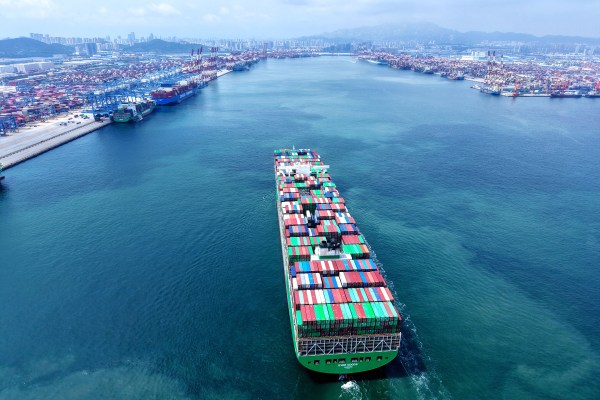
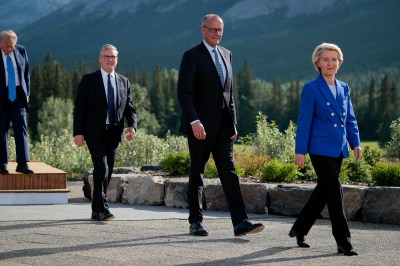
Please note that we at The Dispatch hold ourselves, our work, and our commenters to a higher standard than other places on the internet. We welcome comments that foster genuine debate or discussion—including comments critical of us or our work—but responses that include ad hominem attacks on fellow Dispatch members or are intended to stoke fear and anger may be moderated.
With your membership, you only have the ability to comment on The Morning Dispatch articles. Consider upgrading to join the conversation everywhere.